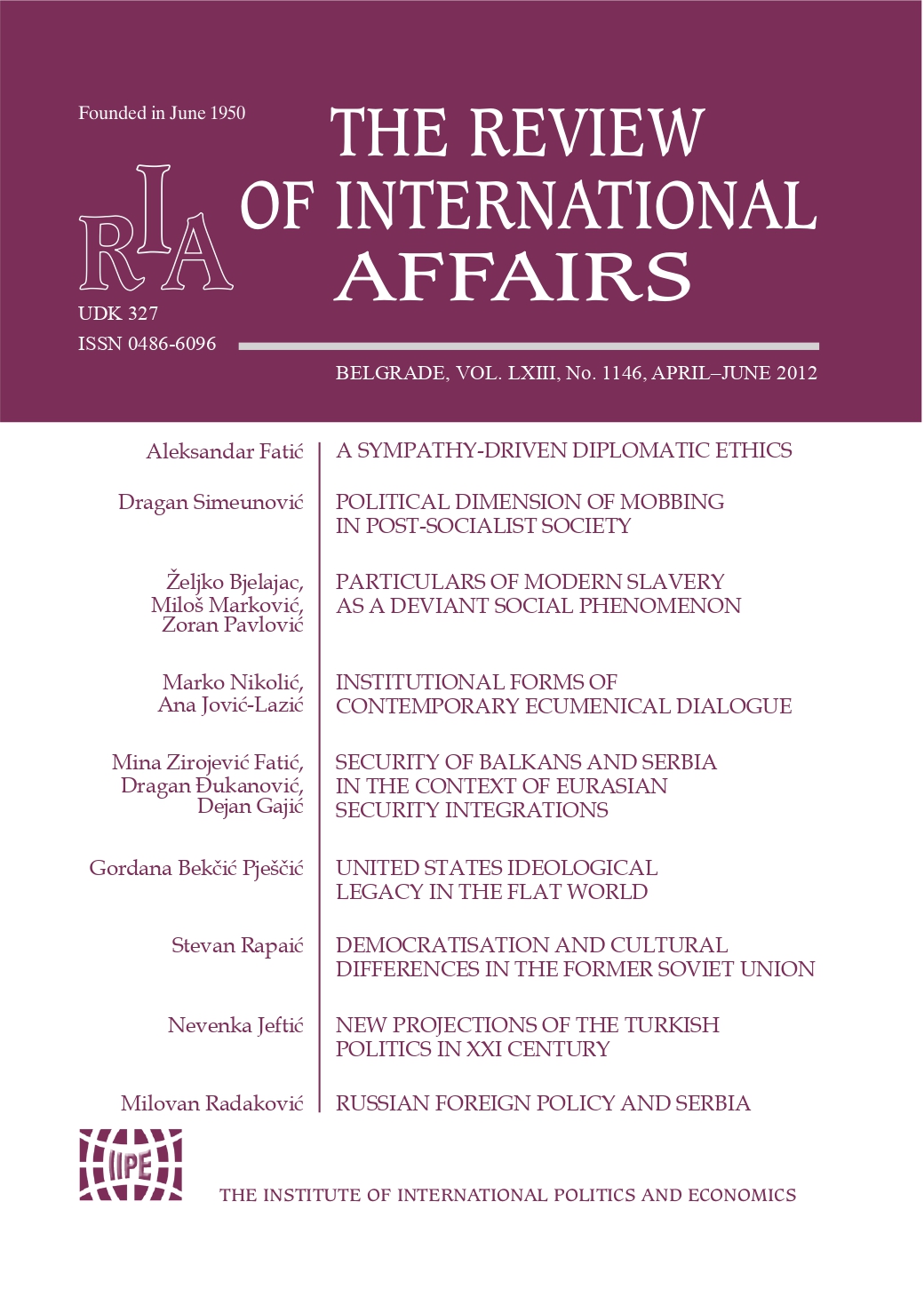Institutional Forms of Contemporary Ecumenical Dialogue
Institutional Forms of Contemporary Ecumenical Dialogue
Author(s): Marko Nikolić, Ana Jović-LazićSubject(s): Politics / Political Sciences, Theology and Religion
Published by: Институт за међународну политику и привреду
Keywords: ecumenism; ecumenical movement; World Council of Churches (WCC); Conference of European Churches (CEC); Parliament of World Religions
Summary/Abstract: The article deals with the issue of ecumenism and the most important examples of its “institutionalisation”. It is stated that ecumenism considers doctrine, universal inter–church movement and proclaimed mission statement related to achieve Christian unity. It possesses at least theological, sociological and political determines. The World Council of Churches represents universal inter-church forum for dialogue and cooperation that lacks clear ecclesiological identity but getting characteristics of typical international–political movement. The Conference of European Churches represents similar European organization. The Parliament of World Religions pretends to found and promote “global ethics” in order to accomplish pacifistic goals in the world.
Journal: The Review of International Affairs
- Issue Year: LXIII/2012
- Issue No: 1146
- Page Range: 50-69
- Page Count: 20
- Language: English

